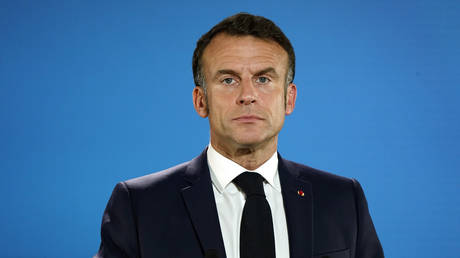Chang hires American lawyers to fight extradition
(AIM) – Former Mozambican Finance Minister Manuel Chang is still fighting to avoid extradition to the United States, even though he has exhausted all possible avenues of appeal in the South African legal system.
According to an article published by Mozambique’s main anti-corruption NGO, the Centre for Public Integrity (CIP), Chang has hired a prominent firm of lawyers in New York, Ford O’Brien Landy LLP, to fight against his impending extradition.
Chang was detained on 29 December 2018, in Johannesburg, where he was in transit to the United Arab Emirates, intending to spend New Year’s Eve in Dubai. But in Johannesburg airport, Mozambique’s largest ever scandal, known as the case of the “hidden debts”, caught up with him.
He was arrested on the based of an international arrest warrant, issued by the United States authorities. The US prosecutors intended to charge him with conspiracy to commit money laundering, wire fraud and securities fraud.
The charges arose from the loans of over two billion dollars obtained from the banks Credit Suisse and VTB of Russia in 2013 and 2014 by three fraudulent, security-linked Mozambican companies – Proindicus, Ematum (Mozambique Tuna Company), and MAM (Mozambique Assets Management). Although the companies had never traded before, and although they were run by the Mozambican Security and Intelligence Service (SISE), the banks handed the money over, since the government of the day, under the then President, Armando Guebuza, issued guarantees covering 100 per cent of the loans.
Chang signed the guarantees, although he certainly knew they were illegal – they smashed through the ceiling on loan guarantees established by the 2013 and 2014 budget laws.
Behind the loans stood the Abu Dhabi based group Privinvest, which bribed Credit Suisse bankers and Mozambican officials, including Chang. Privinvest became the sole contractor for the three companies, selling them fishing boats, patrol vessels, radar stations and other assets at vastly inflated prices. The companies went predictably bankrupt, and, thanks to the guarantees signed by Chang, the Mozambican state became liable to repay the loans.
The United States claimed jurisdiction in the case because the fraudsters used the US financial system, and because US investors were among those defrauded.
The South African courts found themselves faced with two demands for Chang’s extradition – one from the US, and one from the Mozambican Attorney-General’s Office (PGR).
For about four years, Chang’s fate hung in the balance. On two occasions, South African justice ministers (first, Michel Masupha, and then his successor, Ronald Lamola) ruled that Chang should be sent to Mozambique – but on both occasions they were overruled by the courts. Finally, in May, the highest court in South Africa, the Constitutional Court, refused to give Chang leave to appeal against extradition to the US.
But Chang has not given up. His US defence lawyers submitted a petition to the US District Court, for the Eastern District of New York, in Brooklyn, where he should be tried.
The defence petition, cited at length by CIP, argues that the indictment against Chang should be dismissed, because the delay in bringing him to court “has violated his right to a speedy trial”.
The defence blamed the US government for the delay, arguing that the prosecution “cannot contend that the complexity of the case against Mr Chang warrants this delay, as it was able to complete the trial against Mr Boustani – Mr Chang’s alleged co-conspirator – over three years ago”.
Jean Boustani is a senior Privinvest official who negotiated the deals with the three fraudulent companies, and paid millions of dollars in bribes, both to Mozambicans and to key figures in Credit Suisse (namely Andrew Pearse, Detelina Subeva and Surjan Singh, who all admitted to taking bribes).
Despite the cast-iron case against Boustani, the jury in Brooklyn acquitted him in December 2019. This showed the problems of asking 12 unqualified jurors to make decisions in cases of great financial compexity.
At the time, it was clear that jurors did not understand why the case was being heard in New York, and Boustani’s defence team, capitalised on the difficulties ordinary Americans may face in understanding such crimes as money laundering and securities fraud.
Chang’s lawyers argue that, after Boustani’s acquittal, the American prosecutors lost interest in bringing Chang to trial. More surprising is the claim that Chang himself no longer opposes his extradition to the US.
The defence petition says that Chang “has been eager for an expeditious end to this protracted litigation”, and that two years ago he informed the South African judiciary “that he would abide by whatever decision the South African courts make about where to extradite him, kust to bring the extradition proceedings to an end”.
CIP concludes that the defence petition shows that, despite the Constitutional Court decision, Chang intend to continue fighting against extradition and, if he is sent to New York, he will not accept a plea bargain.
“On the contrary”. CIP adds, “Chang shows that he wants to use his financial resources to attempt to obtain an acquittal from a jury, instead of reaching an agreement with the US Justice Department. Chang is accused of receiving between five and seven million dollars in bribes from Privinvest and seems prepared to use this money to hire good lawyers for his defence. According to the prosecution, Chang’s money was transfered to foreign bank accounts, and so it remains available to him”.
Hence, this saga is by no means over. Chang is prepared to take the substantial risk of a longer jail sentence, if he does not enter a plea bargain, in the hope that, like Boustani, he will be heard by a favourable jury.
(AIM)


















